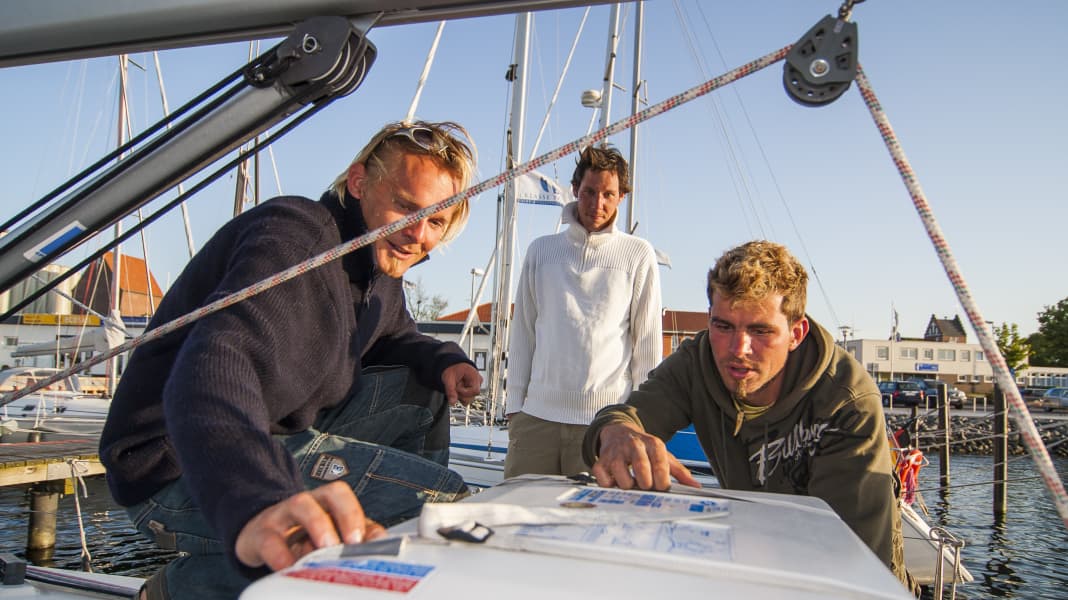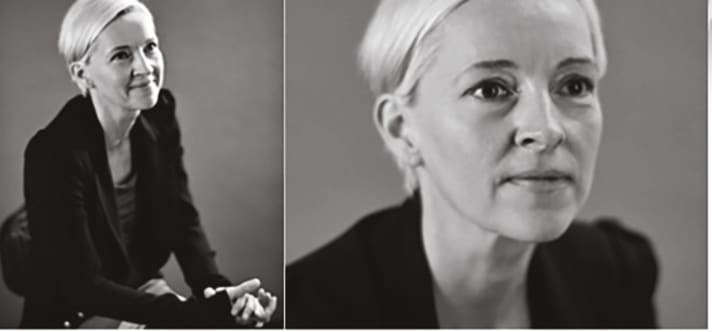
You can also read in this series:
People want to be in control of their own lives and destiny. They want to be in control and not be determined by others or by the unforeseen. They want their needs for self-determination, autonomy, control, freedom and security to be fulfilled. For sailors, however, this is not just a want, but also a - voluntary - must.
At sea, they are often on their own. If they get into trouble, they can't simply ask for directions at the next wave, they can't beam down to the boat accessories shop to get a spare part, they can't drift off to the emergency room to have an injury treated, and they can't just ask Meeno Schrader about the significance of the wall of clouds that is coming up.
How much is enough?
Accordingly, there are quite a few roles to be filled and interdisciplinary skills are required. Knowledge and skills, manual dexterity as well as physical and mental fitness are required. From navigators, caretakers and craftsmen, technicians, electronics engineers, mechatronics engineers, mechanical engineers, meteorologists, IT specialists, paramedics, materials experts, boat builders and sailmakers to swimmers, divers, astronomers and oceanographers.
But how much of what is actually enough? When am I enough in the respective role? Do I have something like a basic competence, at least in the most important disciplines? Or doesn't everyone have very different skills, strengths and consequently also deficits?
In any case, it is not surprising when self-doubt and worries about one's own imperfections creep in at sea, sometimes consciously, often unconsciously. No one is immune to the inner worry of being flawed, imperfect or insufficiently prepared. Everyone is familiar with these doubts.
What skills are required?
But where do I start and, more importantly, where do I end? There are certificates, courses, seminars, books, magazines, links, updates and apps for everything. The optimisation seems almost endless.
This starts with the question of the necessary sailing licences, which in turn depends on the sailing area. In addition to the required licences such as SBF Binnen and SBF See, I also need the correct radio certificate and the pyro licence as required. I can then voluntarily take the SKS, SSS and SHS or the Yachtmaster. This would allow me to improve my sailing technique and manoeuvring skills, as well as my knowledge. Or would it just be a false sense of security in two senses?
The list of possibilities is by no means exhausted. How well can you actually operate the on-board electronics? When did you last update your chart plotter or tablet? Aren't some users now overwhelmed by the complexity of the devices? And how safe is electronic navigation anyway? What do I do if the sextant and compass go overboard in addition to the electronic failure? Should I brush up on my terrestrial knowledge and attend courses in astronomical or possibly Polynesian navigation? Do I have a tide app, celestial body app and at least two or three weather apps on my mobile phone?
A few semesters of medicine wouldn't hurt either. While it only takes a few minutes for professional help to arrive in an emergency on land, this can take hours or even days at sea. In this respect, first aid on board is often the only one available for a long time and should therefore be carried out competently. In addition, the on-board pharmacy should be stocked with a few more pharmaceuticals than recommended, as DocMorris does not yet deliver to the sea. And then a book on pharmacy too, please. Oh, I forgot the workshop on tropical medicine.
And then we don't want to ignore all the things that can wear out and break on board due to moisture, salt air, wind and waves. Actually, everything. The heavy use of the boat and its technology, right down to the sails, leads to long checklists for tools, spare and wear parts as well as lubricants, adhesives, sealants and other operating materials. But even these are only an approximation of what is needed in a real emergency. No parts list, no matter how comprehensive, will ever fulfil a claim to completeness.
And: the charge regulator for the alternator has not yet been replaced, the pawls for the winch have not been fitted, the seal for the pump lever for the on-board toilet has not been installed and the tear in the main has not yet been reliably repaired with sail tape.
I prefer not to go into the handling and maintenance of safety waistcoats, emergency radio beacons and life rafts at this point. I'm sure you know all about that! Ditto the clearance regulations, the maximum quantities of duty-free alcoholic beverages, the scope of the required ship's papers, the mandatory and highly recommended special insurances. You have it all - don't you?
I will also not mention any peripheral areas of skipper expertise. You can perhaps simply google the historical significance and cultural highlights of your cruising destinations or look them up on Wikipedia. You don't have to learn something like this like a proseminar on holiday planning. Otherwise, in the face of this flood of preparations, conditions and requirements, some people end up not sailing at all - out of the feeling that they will never be able to fulfil the task and themselves anyway.
When am I enough?
The thought "I am not enough" is indeed not a helpful trimmer, but a leak that is difficult to localise, unfortunately. It makes dreams seem unattainable. It is definitely not possible to master all eventualities. Perfectionism all too often goes hand in hand with fear of failure, fear of failing or fear of losing esteem and reputation.
However, it is important to differentiate: Dysfunctional perfectionists are characterised by excessive preoccupation. They tend to focus exclusively on the problems of their performance. Their self-worth is too strongly linked to success, they do not feel unconditional kindness or satisfaction towards themselves and often assume that others feel the same way about them. This is why they try to gain recognition through top performance; they often make their self-worth dependent on the judgement of others.
Functional perfectionism, on the other hand, is found in people who give their best, make an intensive effort and are orientated towards success. However, if the desired performance is not fully achieved, their ego does not immediately capsize. They do not lose themselves in negative emotions or excessive mental preoccupation with the supposed failure. If they achieve something, even if it is only so-so, they are happy and feel proud.
So, feel free to enter into a dialogue with your inner critic, but be aware that it can only be valuable up to a certain point. It's not as if we shouldn't work on ourselves in general. However, don't forget your strengths and competences. Gain a realistic view of yourself. Ask others where they see your talents, skills and abilities.
But above all, don't let the expectations of supposed experts overwhelm you when sailing. This can make you insecure, make you forget your passions, increase the pressure to avoid mistakes and lead to fear of failure. Instead, let people tell you about their mistakes - especially those who are open and willing to recognise that mistakes happen and that they can also gain something positive from them. Recognising mistakes as an opportunity leads to greater satisfaction.
There will almost always be someone who is better and more competent than you in one of the roles mentioned above. But everyone has shortcomings somewhere, blind spots. Therefore: Go for it, but don't worry about it. Thinking too much keeps you from the actual project. Practise letting go! Give freedom, adventure and learning a chance. Not everything has to be planned, done and mastered with a plus. Because there is always a certain residual risk.
Boris Herrmann describes it as follows in the prologue to his book "Allein zwischen Himmel und Meer": "It's worth trying everything to realise a lifelong dream. The hurdles are high, the risks numerous. But the biggest risk would be not to try."
The author

You can also read in this series:

